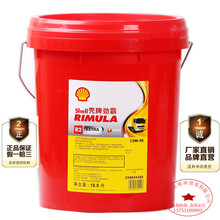當(dāng)前位置:
網(wǎng)站首頁 — 自控閥門:提高食品加工安全和質(zhì)量的保障解決方案
自控閥門:提高食品加工安全和質(zhì)量的保障解決方案


Title: Enhancing Food Processing Safety and Quality Assurance with Control ValvesIntroduction:In the realm of food processing,自控 ensuring safety and maintaining high-quality standards are of utmost importance. Industries must employ robust solutions to regulate processes effectively. Control valves play a pivotal role in meeting these objectives by offering reliable and precise control over various aspects of food production. This article explores how control valves provide a solution for enhancing food processing safety and quality.Body:1. Precise Temperature and Pressure Control:Control valves enable precise regulation of temperature and pressure parameters during food processing. By maintaining optimal conditions, control valves help prevent harmful bacteria growth and ensure the preservation of taste and nutritional value. The ability to adjust temperature and pressure accurately enhances product consistency and reduces the risk of foodborne illnesses.2. Flow Control and Prevention of Contamination:Controlling the flow of ingredients and finished products is critical in food processing. Control valves facilitate accurate flow control, preventing cross-contamination and ensuring hygiene. By eliminating excess product accumulation and backflow, these valves minimize the risk of bacterial growth and maintain the integrity of the final product.3. Automatic Shutdown for Emergency Situations:In case of emergencies such as equipment malfunction or sudden pressure fluctuations, control valves equipped with advanced sensors can automatically shut off the production line. This prompt response reduces the likelihood of product contamination and ensures consumer safety. Control valves act as a failsafe mechanism, safeguarding both the product and the production process.4. Improved Efficiency and Cost Reduction:Control valves optimize food processing operations by streamlining energy consumption and minimizing waste. Accurate control of temperature, pressure, and flow rates eliminates unnecessary energy usage and prevents over-processing. Additionally, by reducing product loss caused by contamination or imprecise control, control valves contribute to cost reduction and increased profitability.5. Compliance with Industry Regulations:Food processing industries must adhere to strict regulatory standards to ensure consumer safety. Control valves play a crucial role in compliance by providing traceability and documentation of critical process parameters. By enabling accurate control and data recording, these valves help companies meet regulatory requirements and maintain consumer trust.Conclusion:Control valves offer effective solutions for enhancing food processing safety and quality. The ability to regulate temperature, pressure, and flow rates with precision ensures optimal conditions throughout the production process. By preventing contamination, automating emergency shutdowns, improving efficiency, and aiding regulatory compliance, control valves provide a comprehensive and reliable safeguard for the food industry. Incorporating control valves in food processing systems demonstrates a commitment to maintaining high standards and consumer satisfaction.
友情鏈接